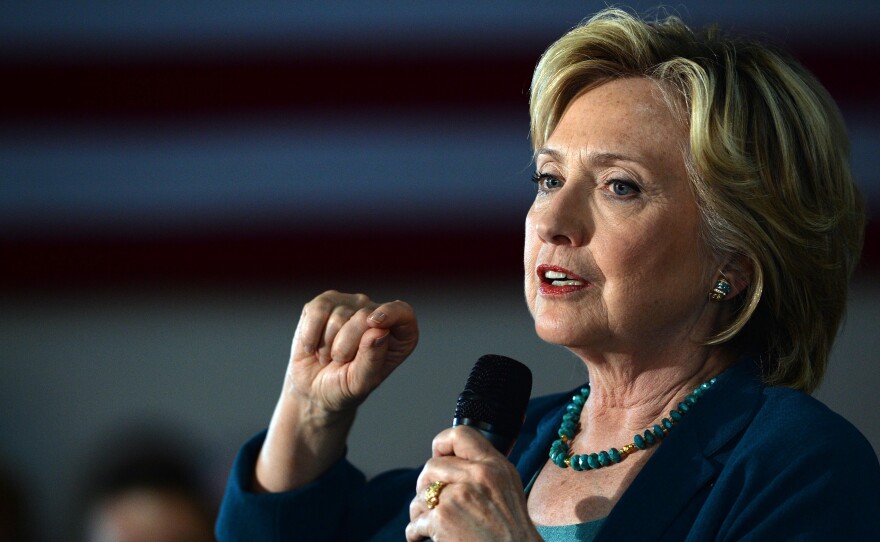The State Department is preparing to release another batch of Hillary Clinton's email messages Wednesday. It's the latest in what Clinton herself called a process of "drip drip drip" that will extend into early next year.
The email controversy has been causing the presidential hopeful a lot of political problems. But here's one reason the former secretary of state has been careful in how she responds to questions: The FBI is investigating the possible compromise of security information. So, when Clinton gets questions from reporters and voters about her emails, she's also talking to investigators.
Consider this exchange Clinton had with Chuck Todd, on NBC's Meet the Press last Sunday, about her motive for setting up the home email server:
"Republicans have been coming after you for years. You might have been running for president in the future, and you wanted to make it a little more difficult for congressional investigators to subpoena your government emails and a little more difficult for Freedom of Information Act requests. Is that a fair theory or not?"
Clinton's reply?
"It's totally ridiculous, that never crossed my mind."
Now, there's a reason she might have decided to answer this way. Remember, Clinton is talking to two audiences: voters and investigators, and when it comes to avoiding subpoenas, lawyers will tell you, there's an important law passed in 2002 after the Enron scandal.
That law makes it a crime, obstructing justice, to get rid of documents in anticipation of an investigation by the Justice Department or Congress.
The FBI is investigating how and why sensitive information got onto her server. Clinton herself is not a target of the investigation. One issue that keeps coming up is whether that material was classified.
In August, Clinton told a Fox News reporter that none of the data had been marked.
"Whether it was a personal account or a government account, I did not send classified material and I did not receive any material that was marked or designated classified which is the way you know whether something is," she said.
From a legal standpoint, that response packed a punch. Knowledge matters in the law. In order to prosecute someone for mishandling classified information, the Justice Department needs to show a defendant knowingly violated the law — they knew the information was classified but went on to send it anyway.
In the past week, the State Department and the Defense Department said they have turned up new emails, messages apparently not shared with congressional investigators.
In August, as part of a Freedom of Information Act lawsuit, Clinton signed an affidavit. The sworn statement didn't say she turned over all the emails. Rather, the document said Clinton "directed" that messages that are or might be considered federal records be turned over to the State Department. Clinton said she believed that had happened as of last month.
Here's why this matters under the law. She said she didn't sift through them herself. Instead, she relied on lawyers to do that work, and reliance on attorneys, of course, is another legal defense.
That may not be a coincidence. Hillary Clinton is a 1973 graduate of Yale Law School.
Copyright 2023 NPR. To see more, visit https://www.npr.org. 9(MDAzMjM2NDYzMDEyMzc1Njk5NjAxNzY3OQ001))







